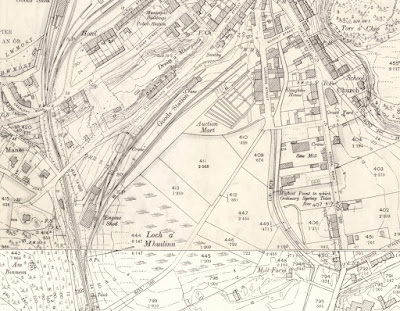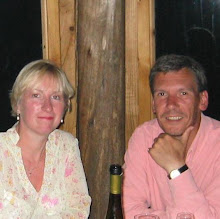Towns are few and far between on the western seaboard of Scotland outside the Firth of Clyde so there's usually an interesting story around their establishment. For a while I've been noting down any snippets I've chanced across about the early history of Oban and today I had a look at the location on the Roy Maps drawn around 1750:-
 |
| From National Library of Scotland's Geo-referenced maps |
These maps were drawn before the town was established in the last quarter of the 18th century so one shouldn't read anything into the cluster of red dots - it probably indicates little more than a baile, the Gaelic word for a pre-industrial communal farm known as fermtoun in English. But what did catch my eye on the Roy Maps was something I never knew about before - the now vanished Loch Oban. And note Oban Miln on its south east shore: miln is the old Scottish word for mill.
100 years later and the Admiralty Chart surveyed in 1856 shows us that "Loch" Oban is, in fact (or perhaps had become due to drainage in connection wih development of the surrounding town) merely a "Marsh at times covered with water".
 |
| National Library of Scotland |
By 1870, when the first Ordnance Survey Six Inch map was drawn, the "loch" appears if anything even drier but is now named Loch a' Mhuilinn. Pronounced "LOCH-ah VOO-lin", that's Gaelic for "Mill Loch". Note that the mill is still there:-
 |
| National Library of Scotland |
Fast forward another 30 years and the OS 25 inch map of 1898 indicates that the north part of the loch is now totally drained and occupied by a goods station and an auction mart entered off Lochside Street. The mill appears to have been replaced by Mill Farm:-
 |
| National Library of Scotland |
Today, the site is occupied by the inevitable ...
 |
| Google Streetview |
And behind Tesco is Lochavulin Industrial Estate, the origin of the name of which is now revealed. I suppose Tesco and an industrial estate containing Homebase and Argos etc. is functionally the same to a 21st century town as a miln was to an 18th century baile. There's all sorts of fascinating local history lurking in the most unlikely spots!

No comments:
Post a Comment